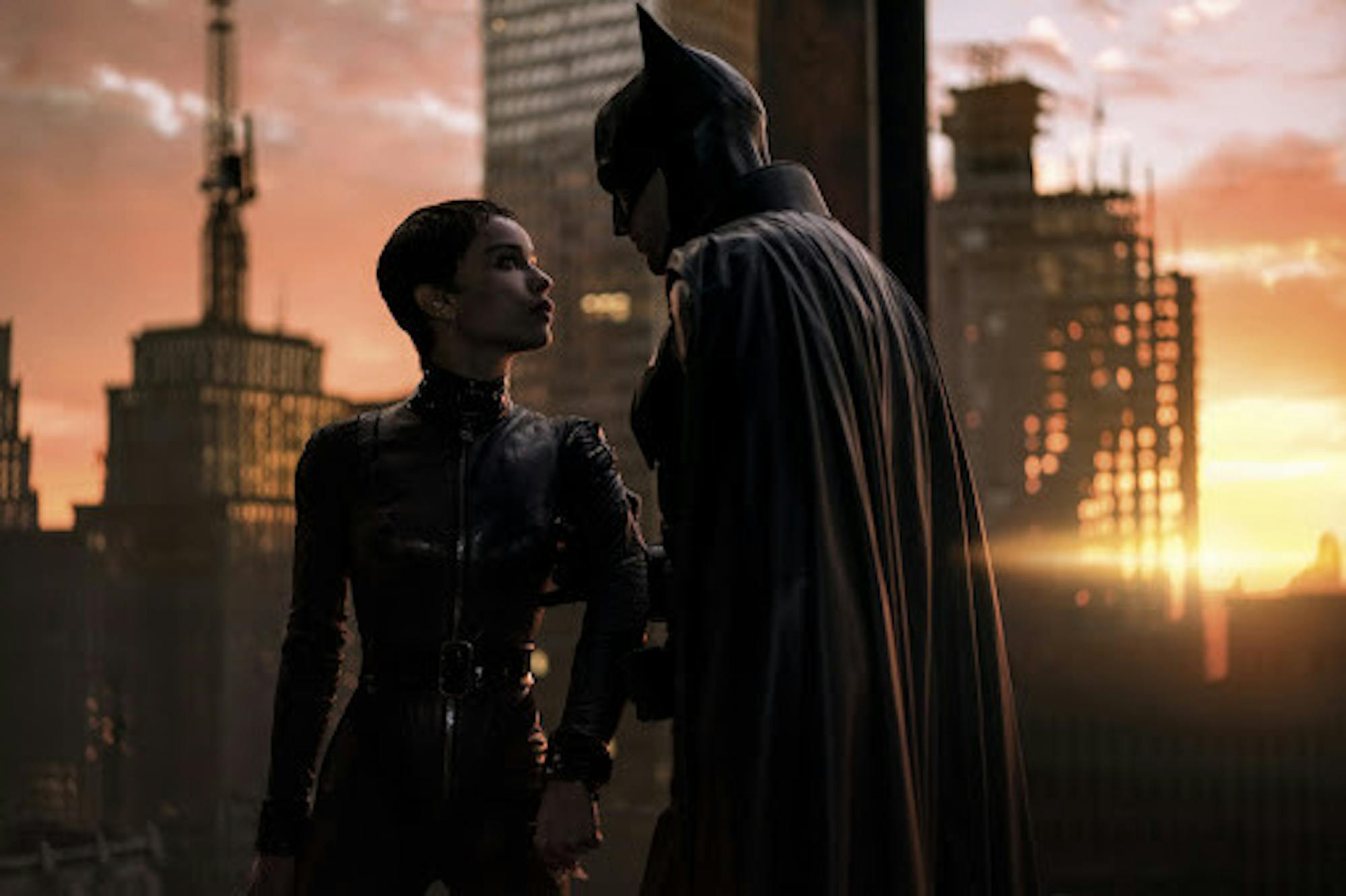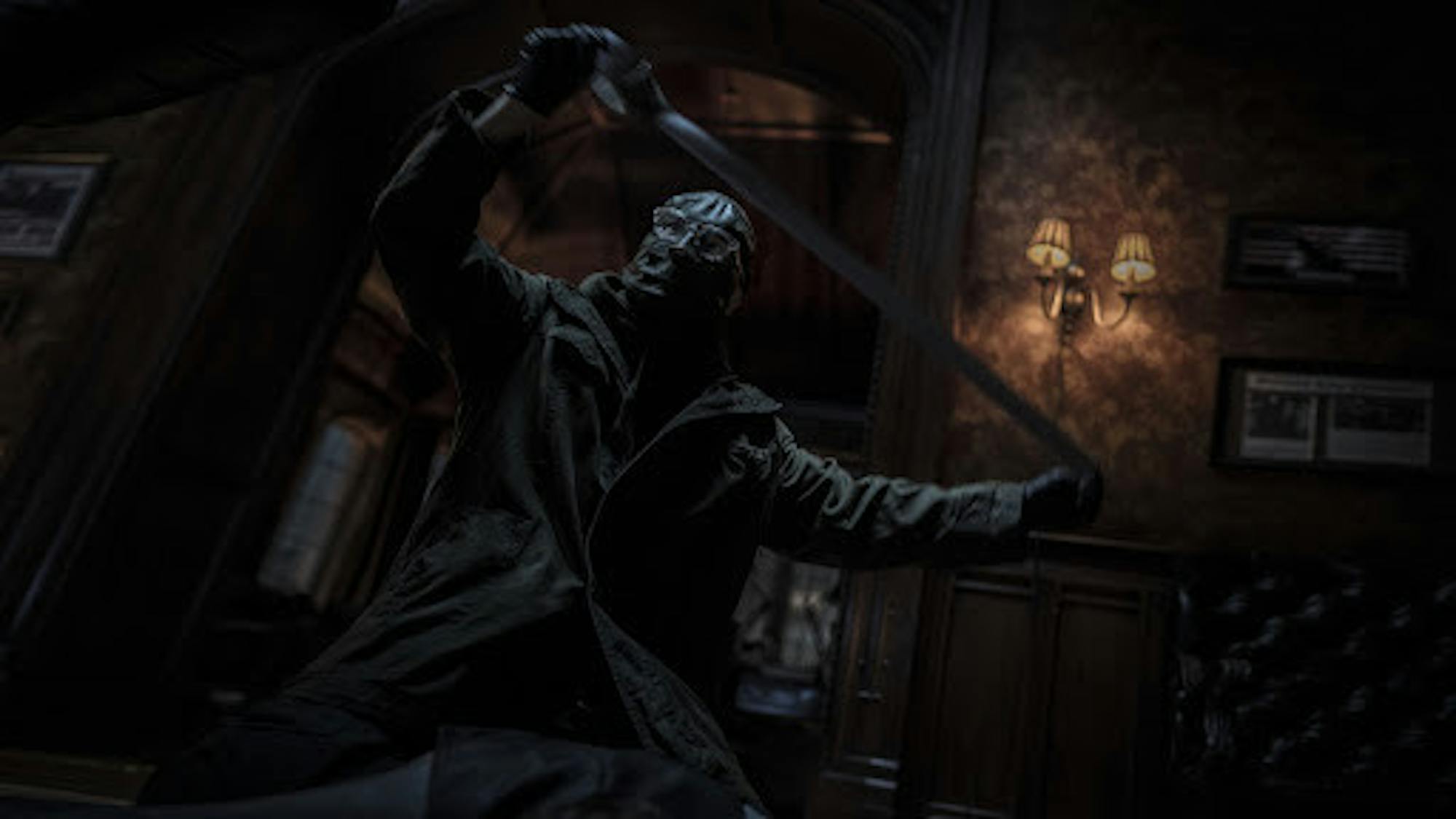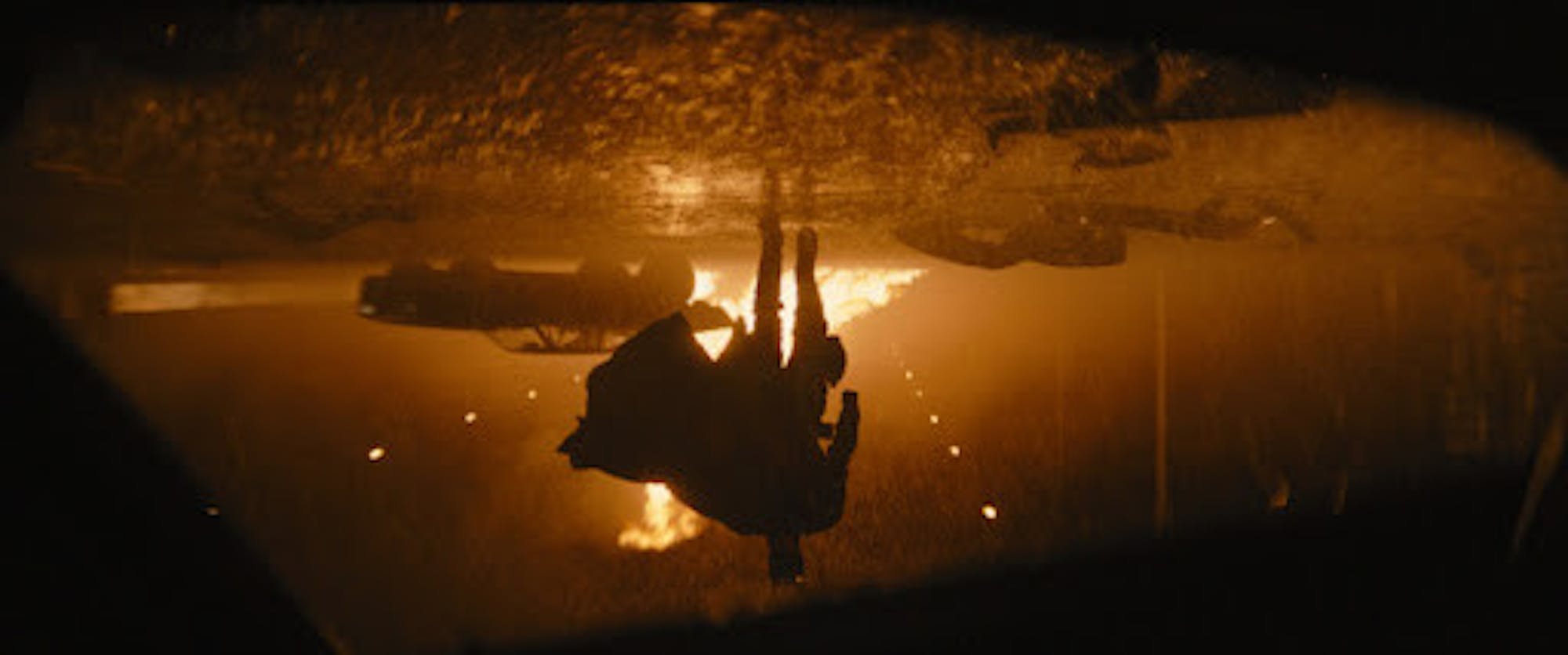
This review contains minor spoilers.
“Who the hell are you supposed to be?” a gang member, clad in white face paint, asks as Batman (Robert Pattinson) emerges from the shadows of a nearby alleyway. The Caped Crusader knocks him to the rain-soaked pavement and brutally beats the criminal into submission. “I’m vengeance,” he replies.
“The Batman,” which releases in theaters Mar. 4, follows a younger, angrier Bruce Wayne as he fights crime in a grimy and vicious vision of Gotham City. A serial killer named Edward Nashton, known only as the Riddler (Paul Dano), begins to murder prominent city leaders in a quest to cleanse Gotham of corruption, leaving clues with each victim. Bruce Wayne finds himself plunged headfirst into the dizzying underbelly of Gotham City in a quest to find the Riddler. During his journey, corruption seeps into Bruce’s life like rainwater until he finds himself questioning his own morality.
The performances in “The Batman” bring a level of nuance to Gotham City’s characters that has rarely been present in previous iterations (with the notable exception of Christopher Nolan’s trilogy). Pattinson’s performance is the best portrayal of Bruce Wayne to date. Batman reckons with the morality of his vigilantism and his family’s legacy in a city of crookedness. Over the course of the film, Bruce realizes that heroism is more than just vengeance. Dano’s performance as the Riddler is electric, swinging wildly between calm rationalism and hysteric bursts of emotion. The Riddler is an extremist who seeks to use terroristic methods to take down the dishonest power structures in Gotham City. While he is undoubtedly the film’s villain, he reflects a wave of very real vitriolic anger toward Gotham’s leaders. While Pattinson and Dano deliver the powerhouse performances, Zoë Kravitz provides a unique take on Catwoman and Jeffrey Wright excels as Officer Gordon (not yet Commissioner Gordon).
While “The Batman” entertains throughout its nearly three-hour runtime and provides some much-needed complexity to Gotham’s characters and their relationships, its story can feel somewhat predictable. The narrative feels especially familiar if one has seen “Se7en” (1995), directed by David Fincher, which clearly had a massive influence on this film. The similarities between the two movies are striking, from the constantly rainy streets to the killer who speaks in ciphers and seeks to wash away corruption and sin. Much like “Se7en,” this film trucks forward at a breakneck pace, with exciting action sequences and little dead time. Unfortunately, “The Batman” doesn’t quite make it out of the shadows of its inspirations and delivers little that we haven’t seen before.

“The Batman” doesn’t do a lot wrong, per se. Instead, director Matt Reeves plays it safe, despite a marketing campaign that suggests this film is a daring and unique reboot that will revolutionize the superhero genre much like “The Dark Knight” did in 2008. This film is neither daring nor revolutionary, and it acts more like it’s trying to emulate both Nolan’s Batman movies and neo-noirs such as “Chinatown” (1974), “Se7en” and Nolan’s own “Memento” (2000). Those movies excelled because they held a mirror to the gamut of human emotion and made us question our sense of morality. “The Batman,” on the other hand, falls into the trap that lesser neo-noir movies fall into: a lack of emotional stakes.
In “The Dark Knight,” the Joker’s (Heath Ledger) calculated murder of Rachel Dawes (Maggie Gyllenhaal) causes Harvey Dent (Aaron Eckhart) to go into grief-stricken hysteria, leading him to go on a murderous rampage throughout Gothamagainst those he believed responsible. While the characters in “The Batman” have nuanced motives, Reeves never comes close to Nolan's emotional depth. The problem with moral ambiguity without emotional stakes is that there is nobody for the audience to root for, and feelings of ambivalence prevail. I found myself not particularly caring whether Batman succeeded in finding the Riddler or whether the Riddler succeeded in his quest to cleanse the city of corruption.
What makes “The Batman” so frustrating is that there are moments of brilliance strewn throughout its 170-minute runtime. One scene toward the end of the movie where Batman confronts the Riddler displays the two actors at their best and examines the dynamic of their relationship with one another and with Gotham City. Edward, an orphan himself, derides the billionaire Bruce Wayne for the attention he received when his parents died while he had to suffer in an underfunded orphanage. In moments like these, the film dips its toe into critically examining Gotham’s systemic issues of late-stage capitalism, but moments like these are sadly few and far between.

The fundamental flaw of “The Batman” is that it refuses to take risks yet models itself on daring and original films that came before it. There is very little in this film that hasn’t been done before, and better. The one caveat is that I walked into the theater with very high expectations. If you go in expecting an entertaining yet fairly run-of-the-mill Batman story, you won’t walk out of the theater disappointed. However, from the excellent cast to the brief moments of brilliance, “The Batman” indubitably had the potential to be so much more.



![IMG_0064[31].jpeg](https://snworksceo.imgix.net/whl/bd1509fc-0fff-41c3-8a17-14169776d877.sized-1000x1000.jpg?ar=16%3A9&w=500&dpr=2&fit=crop&crop=faces)

